Ava DuVernay Introduces Her Oscar-Nominated Film ‘Selma’ with Live Orchestra at The Soraya
The Younes and Soraya Nazarian Center for the Performing Arts blended star power and historical accounts Feb. 1 as it helped CSUN kick off its series of 2020 Black History Month events.
Filmmaker Ava DuVernay appeared for a special screening of her Academy Award-nominated film “Selma,” which was accompanied by a live orchestra that included the score’s composer, Jason Moran, and conductor Cheche Alara, who has composed for several TV series and conducted multiple Latin Grammy ceremonies.
The night, which celebrated and remembered the legacy of the 1965 voting rights marches from Selma to Montgomery, Ala., led by Martin Luther King Jr., also included an appearance by Donzaleigh Abernathy, a civil rights activist whose father, Rev. Ralph David Abernathy, was a civil rights leader and friend of King.
One of CSUN’s major assets is its proximity to Hollywood, enabling a special event that included musicians Moran and Alara and a surprise appearance by DuVernay, one of the most influential filmmakers working today. DuVernay has been recognized as a writer, director and producer for work that includes the Academy Award-nominated documentary “13th,” the Netflix miniseries “When They See Us,” and the big-budget fantasy film “A Wrinkle in Time.”
As she introduced “Selma,” DuVernay noted both its historical and personal significance.
“The film in its making was transformative for me,” DuVernay said. “As a filmmaker it changed my career forever, and working with Jason Moran, the film’s composer, was a huge part of that.”
Moran accompanied the New West Symphony, which was conducted by Alara. The live music helped bring the emotional beats of the film to life.
“’Selma’ is a historical cinematic document, a love letter to oppressed people,” DuVernay said. “It’s a call to action for all of us.”
History was on display in multiple ways throughout the night, including the exhibit “From Selma to Montgomery,” a series of photographs taken by social activist John Kouns, who documented the civil rights movement in the South.
Keith Rice, a CSUN historian and archivist at the Tom & Ethel Bradley Center in the CSUN Library, and CSUN Africana studies professor Karin Stanford led the archival project, which required detailed restoration of Kouns’ photo negatives as they had been scratched and damaged.
“At The Soraya, we look for opportunities to feature artists and programs that reflect our shared values across campus,” said Thor Steingraber, executive director of The Soraya. “Civil rights and social activism are frequently major aspects of that.
“It’s an honor to lead a collaboration between the performing arts, important Hollywood and historical figures, and a campus entity like the Bradley Center. These partnerships multiply impact.”
Stanford noted the significance of DuVernay’s appearance at the beginning of CSUN’s Black History Month observances.
“It shows the university investment in Black History Month, as well as demonstrates the support for spreading this important history to our students,” she said.
Multiple departments and organizations on campus are hosting Black History Month events throughout the month of February.
Donzaleigh Abernathy spoke in detail about the photos and her own experiences during the time period surrounding the Selma marches. The exhibit is open to the public throughout Black History Month, in The Soraya’s loge level.
“This is important because it is history, and history is written by those who are survivors,” Abernathy said. “Thanks to John Kouns and his photographs, history is captured.”
As she reflected on Black History and closed her remarks, DuVernay encapsulated the essence of the night, with words from King.
“He said, ‘Life’s most persistent and urgent question is, What are you doing for others? The time is always right to do the right thing.’”

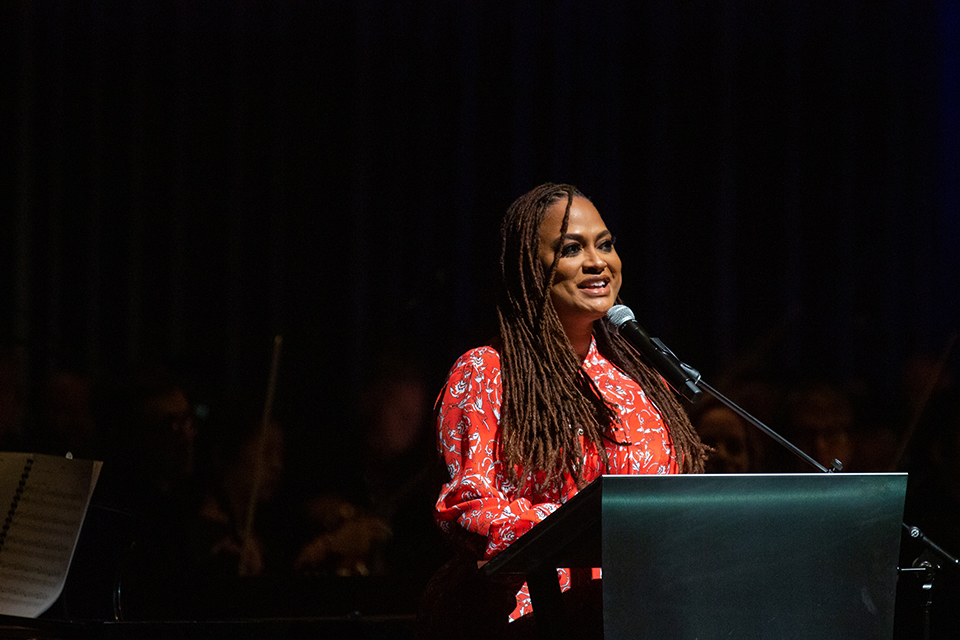
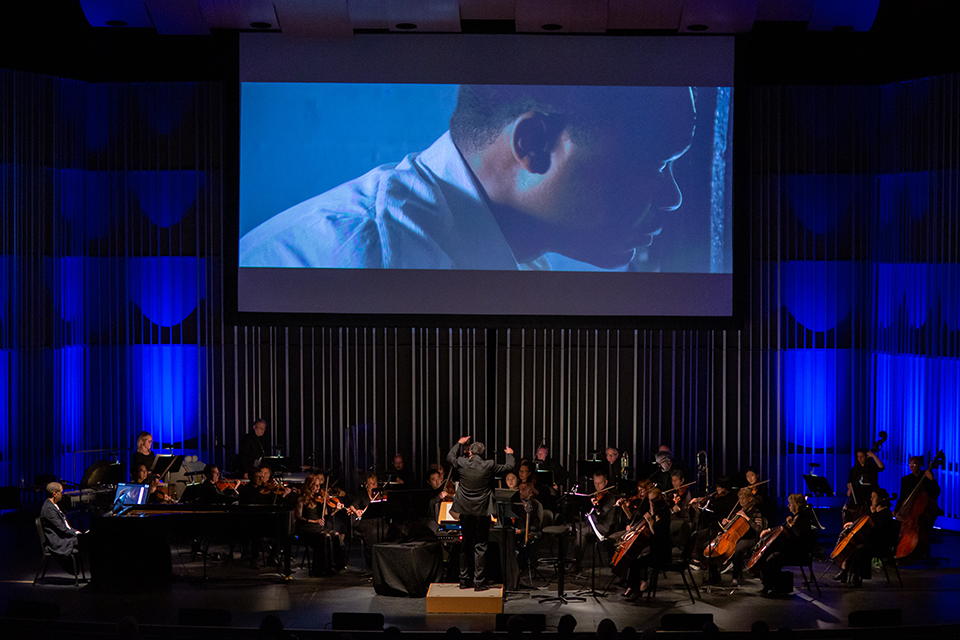
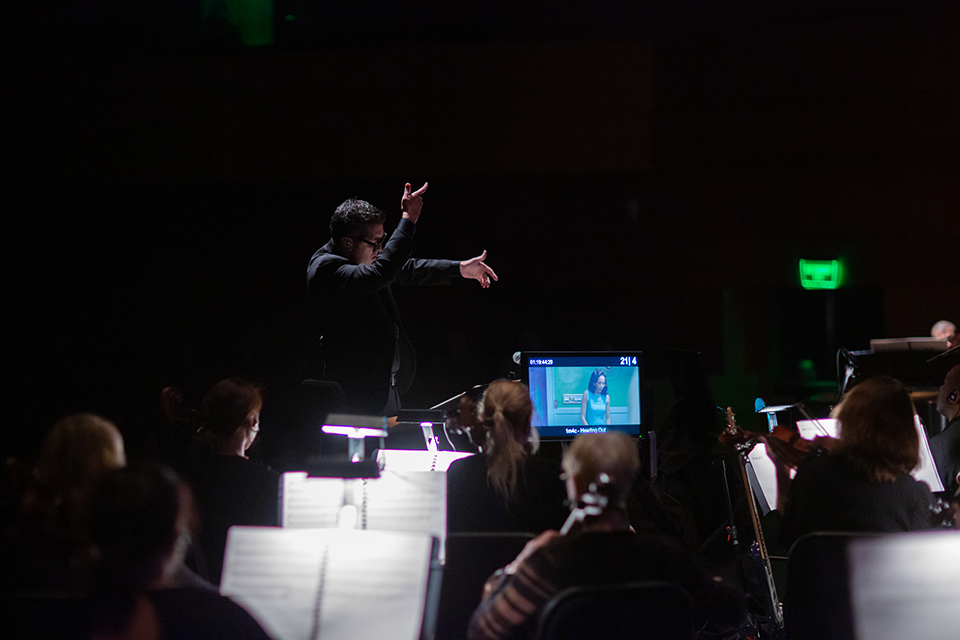
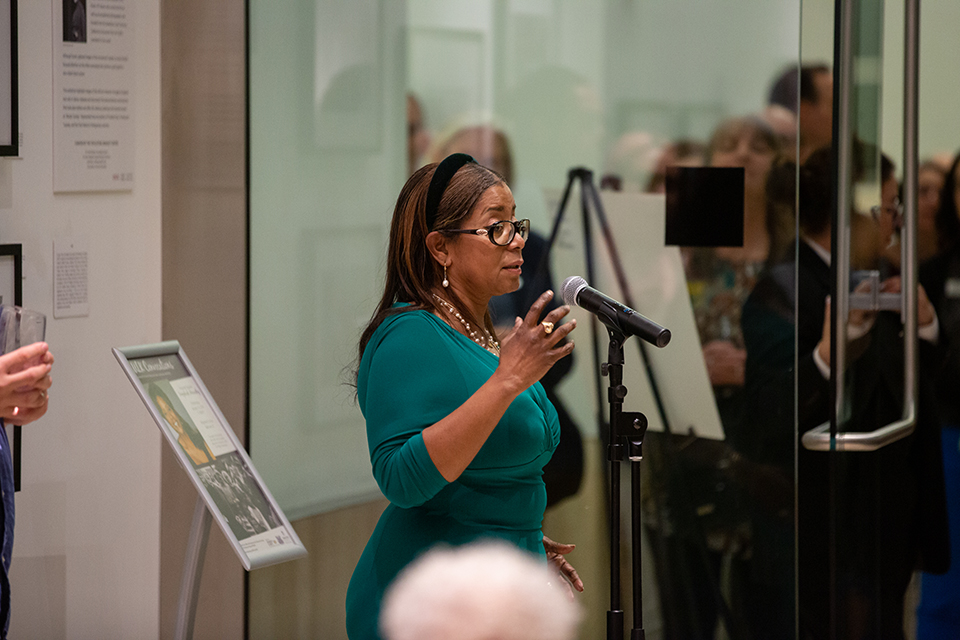
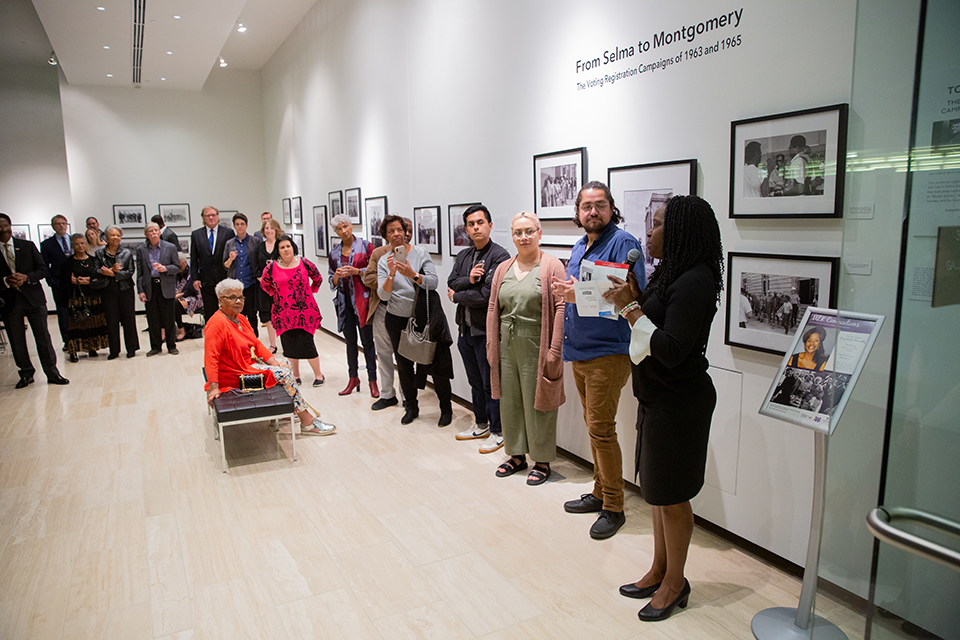
 experience
experience